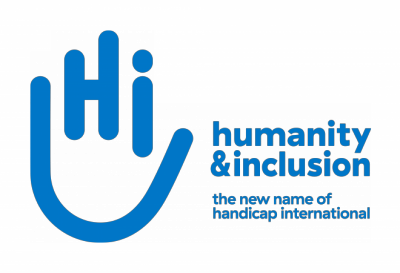Bolivia and Andean states
In Bolivia, HI is seeking to strengthen the inclusion in society of people with disabilities by facilitating access to rehabilitation care for young children and adolescents.

International Day of people with disabilities in Bolivia, music and dance festival | © J. Tusseau / HI
Actions in process
In Bolivia, HI is working to improve the health and access to care of children and adolescents with disabilities and children at risk of developing a disability. We work in places where health services are few and far between, such as in the Altiplano villages of the La Paz region where we are developing homecare services by training and equipping health professionals.
HI supports families with very young children to access health services, while working hand-in-hand with professionals in the field. We provide training and skills enhancement for health professionals to ensure better care for disabled children and support rehabilitation centres through the provision of equipment. The project also ensures better access to development and nutrition services for these children and their families.
In addition, our project supports parents and carers of people with disabilities through a psychosocial support scheme. Awareness raising and support sessions are organised to give them opportunities to discuss and identify ways of overcoming their day-to day difficulties. We also organise disability awareness sessions within communities to inform people with disabilities and their carers about disability rights and existing services. These people thus become agents of inclusion and help fight prejudice and promote the development of a more inclusive society.
Areas of intervention
concretely
Situation of the country

Despite progress in education, health and poverty reduction, Bolivia remains one of the poorest countries in Latin America. People with disabilities, often marginalised, are still insufficiently integrated into Bolivian society.
In 2005, the year Evo Morales was first elected President, Bolivian society and institutions began a process of fundamental change. His election marked a decisive turning point in terms of the recognition and inclusion of the country’s 36 ethnic groups and indigenous cultures. Social and economic reforms have since been undertaken, bringing improvements in the education and health sectors in particular, and helping to reduce the number of people living below the poverty line.
However, despite this progress, Bolivia is still one of the countries with the highest rates of poverty (38.6%) and extreme poverty (16.8%). The incidence of violence against women and girls is particularly high, as is the number of teenage pregnancies. The quality of health services is patchy, insecurity is on the rise, and inequality and unemployment persist, particularly among the young. People with disabilities remain marginalised by society, suffering discrimination and a lack of access to the education system and vocational training. Disability issues are not yet sufficiently taken into account in the country's public policies, which undermines access to services and respect for the rights of people with disabilities.
In 2024, in a context of acute dollar shortages and a political crisis that is worsening month by month, imports of various products ranging from medicines to fuel were difficult, contributing to a deterioration in living conditions for the population.
Lastly, Bolivia is also regularly affected by natural disasters and climate change is having a visible impact, particularly on agriculture, and disrupting the country’s economy. This is particularly true of the droughts and floods that recur periodically in the wake of the El Niño weather phenomenon.
Number of HI staff: 7
Programmed opened in: 2011








 The difference you make
The difference you make
 Financials
Financials
 Make a regular gift
Make a regular gift


